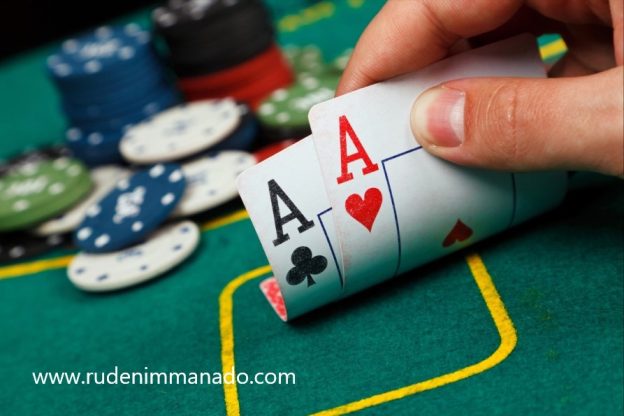Poker: More Than Just a Game of Luck – Poker: More Than Just a Game of Luck
Poker is one of the most iconic card games in the world—synonymous with smoky casinos, sharp suits, stone-faced bluffs, and high-stakes drama. But underneath all the flash and flair lies something far more intricate and compelling: a game of skill, psychology, and strategy that has captivated millions for centuries.
A Brief History
The exact origins of poker are up for debate. Some believe it evolved from a 16th-century Persian game called “As Nas,” while others trace it back to various European card games such as the French “Poque” or the German “Pochen.” What’s clear is that by the early 1800s, a recognizable version of poker was being played along the Mississippi River. Riverboat gamblers helped spread the game across the United States, and as the rules evolved, so did its popularity.
From saloons in the Wild West to televised tournaments watched by millions, poker has grown into a global phenomenon. The game has even entered the digital age, with online poker platforms allowing players to test their skills anytime, anywhere.
Skill Over Luck
One of the biggest Just a Game of Luck misconceptions about poker is that it’s purely a game of chance. Yes, luck plays a role—after all, you can’t control the cards you’re dealt. But that’s just the beginning. What you do with those cards is what separates novices from professionals.
Skilled players understand the mathematics behind poker. They calculate odds, read betting patterns, and make informed decisions based on probabilities. But poker isn’t played in a vacuum—it’s played against other people, which adds a whole new dimension.
This is where psychology comes in. Reading your opponent, sensing weakness, disguising strength—these are as critical as knowing when to fold or raise. A good poker player knows when to bluff, when to call, and when to walk away. It’s a delicate dance of logic and intuition.
The Thrill of the Bluff
Bluffing is perhaps the most famous element of poker. It’s the moment when a player bets big with a weak hand, hoping to convince their opponents they’re holding the nuts (the best possible hand). Bluffing isn’t just about lying—it’s about timing, confidence, and reading the room.
Pulling off a successful bluff can feel like a small victory in itself. It’s the heart-pounding moment that defines poker not just as a card game, but as a psychological battlefield. But bluff too often, and you become predictable. Don’t bluff enough, and your game becomes transparent. Balance is key.
The Rise of Online Poker
The early 2000s saw a poker boom, driven largely by the internet. Suddenly, anyone with a computer and a stable connection could join a table and test their skills against players from around the world. Online poker rooms offered everything from free games for beginners to slot depo 10k high-stakes tournaments for pros.
The “Moneymaker Effect”—named after Chris Moneymaker, an amateur who won the 2003 World Series of Poker Main Event after qualifying through an online satellite tournament—proved that anyone could make it big in poker. This sparked a new wave of interest and democratized the game like never before.
Today, online platforms have become more sophisticated, offering immersive experiences, AI-powered opponents, and detailed analytics. But at its core, the essence remains the same: reading your opponents, playing your cards right, and taking calculated risks.
More Than Just a Game
Poker teaches valuable life skills—patience, discipline, emotional control, and decision-making under pressure. Many successful entrepreneurs and investors have credited poker with helping them navigate high-stakes environments. It’s not just about winning money; it’s about learning how to think strategically and stay calm under fire.
For some, poker is a profession. For others, it’s a weekend hobby. But for everyone who sits down at the table, whether real or virtual, poker offers something rare in today’s fast-paced world: a chance to test your mind, trust your instincts, and maybe—just maybe—win big.
